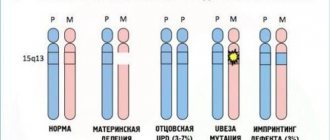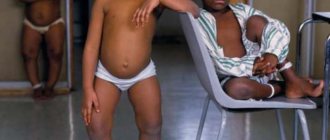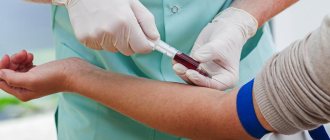Symptoms, treatment methods
Tourette syndrome manifests itself in different ways: mental motor and vocal tics occur. Vocal manifestations consist of involuntary clicking of the tongue, the person coughs, and makes other sounds. In this case, nervous tics may occur, in which all muscle groups are involved. The first alarm bell appears in children between the ages of 4 and 5, more often in boys.
If a woman is pregnant, carrying a baby and becomes ill, the risk of transmitting the disease in the womb increases. The first symptoms, which Gilles de la Tourette described, appear at an early age of the patient. There is a constant repetition of the child’s movements, hyperactivity, twitching, screaming for no reason, a tic appears: the eye, muscles contract irregularly, the baby makes different sounds. There are two types of ticks:
- Motor/vocal.
- Simple / complex.
Everything the child says is vocal. There are such varieties:
- coprolalia (foul language);
- echolalia (constant repetition);
- palilalia (1 word or sentence is repeated).
Serious research and diagnosis of the syndrome will be needed if the symptoms recur within 1 year. The diagnosis is made by a doctor, in conjunction with other factors: psychological disorders, depression, brain function. A simple tic appears as a rapid movement or vocal sound and has no social meaning. A complex tic includes several gestures and sounds, with a duration ranging from a couple of seconds to 2 minutes. The tic occurs involuntarily.
Symptoms of Tourette's syndrome are a state of strong emotional overexcitation, a person moves nervously, convulsions appear, and his tense state is noticeable to others. When the tension becomes too strong, the patient begins to twitch, scream or laugh hysterically. When the attack passes, relief comes. Tics are classified as follows:
- temporary;
- persistent;
- Tourette's syndrome - diagnosis is made after 1 year of illness.
Symptoms appear before the age of 18 and are not a consequence of drug use or progression of other mental disorders. At school age, it affects learning, the child does not learn the material well, and memory becomes dull.
Medical history
The earliest descriptions of patients with motor and vocal tics are found in the ancient Greeks. Neurological pathology was first identified by the French psychiatrist Jean Itard, who observed a patient with multiple motor and vocal tics of unknown origin in the 20s of the 19th century. The young woman suffered from twitching and loudly shouted obscenities uncontrollably. She was ashamed of her condition and actions, but regularly experienced an involuntary desire to repeat them.
After Itard, the anomaly became of interest to other psychiatrists in France. Among them was the famous clinician Jean-Martin Charcot. Under his leadership, the aspiring doctor Gilles de la Tourette began studying and systematizing nervous tics in his works and described the congenital nature of the disease.
In Russia, another student of Jean-Martin Charcot, neurologist and psychiatrist Vladimir Bekhterev, was the first to write about the disorder in 1890.
How to treat Tourette's syndrome in a child
It is impossible to be completely cured. Medications are used to correct severe symptoms. Children's doctors work with children: speech therapists, psychologists, teachers. Measures should be taken as early as possible - then success is guaranteed. Children are taught to be in society, behave with peers, and learn new things.
Speech therapy classes play a big role - children’s speech develops in a timely manner, but there are violations that are solved by a speech pathologist. Children speak quickly or slowly, their coordination and motor skills are impaired. Such kids cannot tie their shoelaces on their own, their calligraphy is poor, and their speech rate is monotonous.
It is necessary to develop communicative speech: didactics, rules for constructing dialogue, ethics, adaptation in society are involved. The teacher works with the articulatory apparatus - dysarthria is typical.
Why does Tourette's syndrome occur?
The exact cause of Tourette's syndrome is still unclear. This complex disorder is caused by a combination of genetic and environmental factors. Inheritance is possible both by dominant and recessive types.
An important role in the development of the disease is played by imbalances in the balance of chemicals that transmit nerve impulses. Such mediators include dopamine, serotonin, adrenaline, and gamma-aminobutyric acid (GABA). It is assumed that an increase in the production of dopamine and an increase in the sensitivity of receptors to it play a role in the pathogenesis of the syndrome.
Recent neuroanatomical and neuroimaging studies, as well as effective treatment with antipsychotic drugs, suggest that the disease is caused by disturbances of the dopaminergic system in the basal ganglia.
Possible intrauterine factors that increase the risk of a genetic mutation include stress during pregnancy, smoking, taking drugs, alcohol, as well as hypoxia and trauma at birth.
The severity of the disorder is influenced by emotional stress and the child’s use of psychostimulants. Risk factors include family history with transmission of the disease to offspring, as well as gender: the prevalence of pathology in men is 3-4 times higher than in women.
Inpatient treatment for Tourette's syndrome
In this case, there is simply nothing more effective than manipulation in a hospital. Medication procedures are aimed at relieving unpleasant symptoms and controlling one’s well-being. If it is a mild form, you do not need to take medication. To manage your condition, you will need psychological influence, conversations with the family and those around the sick person. For each stage, atypical drugs are used: haloperidol, pimozide and others.
Each group has its own effectiveness, many have not been fully proven in pediatrics. To combat apathy and depression, antidepressants and inhibitors are used. They are indicated in cases where there are serious disorders that interfere with a full life. At the end of the course, you need to stop taking medications gradually. Otherwise, the withdrawal syndrome increases: the symptoms intensify several times.
Other medications are also prescribed, but they are rarely more effective than antipsychotics. The doctor prescribes medications to treat arterial hypertension, which is effective against tics. The second positive point: sedative properties that calm nervousness. Pay attention to side effects: many medications have the opposite effect on the body. There are stimulants that relieve unpleasant spasms after attacks, for example, Ritalin. Some groups are strictly prohibited in Russia; they work with them in the USA and Europe.
Self-medication of the syndrome
There are many reasons for the problem, so if you notice strange things: muscle tension, the head tilts strangely, the child makes strange sounds, his body twitches - contact a doctor immediately! It will not be possible to establish the cause and solve the problem on your own: if a qualified neurologist immediately makes the correct diagnosis, the course will help. Only knowledge and correct information will make it possible to understand that a person does not control this condition. Often parents try to get rid of the symptoms themselves by giving their child antipsychotic medications. This cannot be done: the tremor becomes more intense. Only a medical professional conducts an examination and prescribes sedatives and antipsychotics.
Outpatient program, remission
There are many methods to make the patient feel better and return normal life. It is recommended to visit specialized specialists more often: psychologist, neurologist. A recovery program has been developed aimed at relaxing the central nervous system. There are many cases when the doctor carried out the course incorrectly or at the wrong time - Tourette syndrome remains for life. You need to undergo a course of treatment, and be sure to undergo psychotherapy. The influence of the teacher and psychologist is important; the child is educated about his illness, manifestations, and a decrease in the intensity of symptoms. The cognitive-behavioral impact is important: tics are equated to reflexes. We need training aimed at the ability to independently control emotions.
Social adaptation
Tourette syndrome in any form requires socialization and strict control in order to teach the child to correctly relate and react to his “inferiority” in everyday life, to rebuild his skills, and to learn to control tics. A doctor will help you correct them. The second part of the program for training social and psychological skills: regular visits to a neurologist and psychiatrist. It is recommended to read scientific articles and educate about the severity of symptoms.
Movement disorders frighten children: it is important to find a few words that will calm him down. Parents must clearly understand the mechanism that causes tics, calm the child, and not bring it to a boiling point. It is important to make adjustments to the daily routine and environment of a patient with Tourette syndrome, in order not to worry the person, it is necessary to exclude contacts from the immediate environment of everyone who can adversely influence the psychological and emotional mood of the patient.
The school system provides for such children breaks between classes and rest while completing homework assignments. It is better to solve homework with a tutor, transfer school lessons to the maximum at home. A special program is developed for the student, in which a team of teachers is involved, the features of the disease are understood, and tolerance to the manifestations is developed.
What is Tourette's syndrome
A doctor diagnoses Tourette syndrome in a patient who suffers from repeated motor and at least one vocal tic per day. Vocal tics are characterized by shouting curse words and repetition in speech. In simple terms, Tourette syndrome is expressed in the fact that a person twitches and loudly pronounces phrases that are meaningless and inappropriate for the current situation. The disorder leads to social maladjustment and can cause depression and chronic neuroses.
Tiki: classification
In Tourette's disease, the first hyperkinesis appears before the age of 18 years. There are tics:
- motor and vocal;
- simple (movements affecting a specific muscle group or one sound) and complex (consist of a coordinated combination of different movements and vocal signals).
Simple tics include blinking the eyes, twitching the head and neck, shrugging the shoulders, moving the legs, mouth and nose, and sticking out the tongue. Difficult ones include repeating the actions of other people, obscene gestures, squats, sniffing objects, jumping.
A simple vocal tic can be coughing in the absence of a cold, bronchitis or other diseases, clearing the throat, laughing, grunting. Difficult ones include repetition of words and phrases. According to scientific classification, vocal disorders are divided into three types:
- coprolalia - uncontrollable uttering of curses;
- echolalia - repeating other people's words;
- palilalia - repeated repetition of one's phrases.
Despite the association of Tourette syndrome with coprolalia, according to statistics, this symptom occurs in no more than 10% of patients.
To distinguish pathology from other disorders, when making a diagnosis, the classification of tics is followed:
- Temporary – lasting less than 12 months.
- Persistent - one or more motor and vocal hyperkinesis for more than 12 months. In this case, the patient has either motor or auditory tics, but not a combination of both.
- Tourette's syndrome is a combination of one or more motor hyperkinesis with vocal tics lasting more than 12 months.
Patients with Tourette's syndrome may experience an increase in the frequency and severity of tics when exposed to a stressful situation.
Prevention
It is impossible to get rid of unpleasant symptoms as a whole, but if you practice, you can stop them. It is necessary to follow a regime and monitor the general state of your health. Primary prevention measures are not possible. Secondary prevention includes serious medical care and work with a psychologist to prevent complications. Tourette's syndrome is controlled throughout conscious life - get medical help, keep your emotions in hand.
It is important to identify the disease as early as possible. Nothing can be completely corrected, but in adolescence, progress is obvious; drugs to suppress tics will help. There is no threat to life and intellectual functions, but support for them is important. As you get older, the symptoms decrease, but behavioral disorders, panic attacks, apathy, depression, sudden mood swings, and antisocial habits progress.
Clinical picture
The syndrome is a disorder of simple and complex motor and vocal tics, often associated with obsessive-compulsive symptoms. The disease begins in childhood or adolescence and often lasts a lifetime. Patients describe the urge to tic as an increase in internal tension, a condition that cannot be relieved in any other way.
Symptoms and signs
The pathology is characterized by great variability of symptoms. The first signs of the disease usually appear at the age of 5-7 years. Parents observe the child's frequent blinking, grimacing, sniffling, or coughing. There may be an illusion of stuttering or other speech problems. Then the tics move to the muscles of the trunk and lower extremities. Vocal anomalies also become more complex and develop: the child begins to repeat words and entire phrases many times. After adolescence, in most cases, symptoms of the disease decline, but can progress during periods of stress.
Accompanying illnesses
The pathology does not lead to a decrease in intelligence, but children with Tourette's syndrome often have learning difficulties, short temper, attacks of aggression, enuresis, and VSD. The disease is often accompanied by obsessive-compulsive anxiety disorder. Adolescents and adults may experience bipolar disorder and depression. All this can provoke addiction to alcohol and drugs.
Can Tourette's syndrome be cured?
There is currently no cure for Tourette's syndrome and the disease is considered incurable. Therapy aims to control tics that interfere with daily activities. If hyperkinesis does not interfere with adaptation in society, treatment is not required.
General principles
Treatment consists of taking medications that block dopamine secretion, Botox injections to relieve muscle tics, and behavioral therapy. There is a hypothesis that a deficiency of magnesium and vitamin B6 in the body contributes to increased symptoms, and a diet rich in these elements can reduce the manifestation of the disease.
Pharmacological treatment
Medications for Tourette syndrome are aimed at controlling tics and alleviating the dangerous complications that accompany them. The main pharmacological methods of assistance include:
- drugs that block or lower dopamine levels used for schizophrenia - fluphenazine, haloperidol, risperidone and pimozide, tetrabenazine;
- injections of Botox (or its version - Dysport) into the affected muscle;
- tablets to improve attention and concentration containing methylphenidate and dextroamphetamine;
- adrenergic inhibitors to relieve attacks of rage - clonidine, guanfacine;
- antidepressants to reduce constant anxiety and reduce symptoms of OCD - amitriptyline, Prozac, Sarafem;
- Recent research suggests that some people with the condition respond to topiramate, an epilepsy treatment.
It is important to remember that all drugs have side effects and contraindications, so a doctor must prescribe medications. Sometimes methods of homeopathy and traditional medicine are used for treatment, but there is no official evidence of their effectiveness and a description of the mechanisms of action.
Surgical treatment of the syndrome
In rare cases, surgical methods are used, in particular, bilateral cryocingulotomy is performed. The procedure consists of brain surgery and involves local destruction in one or more brain centers (usually the middle nuclei of the thalamus).
New directions in the treatment of tics
In recent years, interest in solving the problem of adaptation of patients with Tourette syndrome has been rapidly growing. Modern directions of treatment:
- Cognitive behavioral therapy - will identify the impulses for tics, teach you to control them and express tension in other ways;
- psychotherapy, hypnosis, relaxing massage - will help relieve emotional stress, reduce anxiety, obsession, prevent nervous breakdowns and psychosomatic diseases;
- deep brain stimulation - implantation of a medical device to apply electrical stimulation to targeted areas that control movement.










